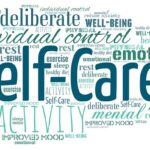8 Paths to Student Loan Forgiveness
A tough job market, sky high student loans, and daily news on a sputtering economy can be quite concerning for future college graduates. If you fall into this group — or even if you’re a recent college graduate — there is still some good news. Your student loans may be eligible for forgiveness, if not now then much sooner than it would take you to pay them off yourself. We’ve compiled 8 Paths to Student Loan Forgiveness as a starting point. As you delve deeper into your career path, you may encounter more. But these options should help guide your search.
1. Teach in low income areas.
You could spend the next 15 to 20 years faithfully paying your college loan bill every month, or you could take advantage of the provisions in the National Defense Education Act of 1958, which stipulates that anyone who teaches for five years in schools that serve low-income families is eligible for 100 percent repayment. If you want to shave off 10 to 15 years, then see about landing a job with a grade school or secondary school that meets the criteria. For more on eligibility, check out the full details at the Federal Student Aid website.
2. Teach math, foreign languages, science, bilingual education, special education, or other high demand disciplines in states with a shortage.
Unlike the example above, you can’t just go to one website to learn about this option as it varies by state. Still, if you’re a math, foreign languages, science, bilingual education, or special education teacher, then it could definitely be worth the Google time that you spend finding out about available programs. You might search “loan forgiveness for [insert discipline here] teacher.” Start there to see what federal monies are available, and then see if you can’t tweak the terminology to get more state specific. Two programs that are good examples of what to expect can be found at the Tennessee Student Assistance Program and the Arizona Commission for Postsecondary Education websites.
3. Serve in Peace Corps.
While the Peace Corps itself claims the rules for loan forgiveness vary and are too nuanced to offer a cookie cutter explanation, you can get the ball rolling by visiting this section of the organization’s website. The short answer to the question, “Are student loans forgiven with Peace Corps service”? Yes, they are. But you will have to talk to a recruiter about this particular benefit to map out a path for student loan forgiveness that works.
4. Serve through AmeriCorps.
Public Law 110-84, signed by former President George W. Bush, provides student loan forgiveness for acts of public service under certain eligibility requirements. The College Cost Reduction and Access Act of 2007 also has an income-based repayment program to make payments more affordable to low-income borrowers if you can’t, for some reason, meet the loan forgiveness requirements. If you can meet the requirements, then AmeriCorps will count towards the government’s public service commitment.
5. Medical research.
Doctors and nurse practitioners know what it’s like to face staggering debts fresh out of school, and while there may be better earning potential by finding a job, there’s a lot to be said for service repayment plans. There are literally too many to list in the space we have available, but we can guide you to the vast database over at the Association of American Medical Colleges. Minnesota, Tennessee, Vermont, and West Virginia, are just a few of the states that feature these types of programs.
6. Work in occupational or physical therapy.
The American Occupational Therapy Association recently got occupational therapy recognized as a profession of national need, according to the AOTA website. In doing so, they have made it possible for occupational therapists working with children, adolescents, and veterans eligible for loan forgiveness programs. “The program will authorize loan forgiveness for up to $10,000 in loans over a 5 year period,” the website states, adding that the program “is still in the process of being designed and implemented, and information will be posted on the AOTA Web site as it becomes available.” Keep a watch for it here.
7. National Health Service Corps.
As you can see, there are no shortage of programs to help medical professionals toward student loan forgiveness. Yet another one available to primary care providers in medical, dental, or mental / behavioral health is the NHSC Loan Repayment Program, which affords up to $60,000 toward the life of the loan. This may not take care of the full bill, but it does offer up a huge boost for anyone looking to square their debts and get on with their career.
8. Serve in a non-profit or public capacity.
This loan forgiveness stipulation takes its roots back in the 2007 act that President Bush signed — the same one detailed in No. 4 on this list. Through public service, you could be eligible for loan forgiveness. The only challenge may be in recognizing what constitutes public service. Generally, non-profit organizations are safe, but the stipulations may vary in length of time and level of involvement. Whenever you hear the term “public service,” it could mean any number of things from serving as a volunteer firefighter to joining the Ambulance Corps.
Other sectors where eligible public service exists include: Electricity, education, environmental protection, fire service, gas, health care, law enforcement, and military. Also, see public broadcasting, public library, public security, public transit, public housing, social services, telecommunications, waste management, and water supply.
In Closing
Hopefully, this roundup of student loan forgiveness programs and pathways will get you well on your way to the next chapter of life without having to worry about the financial albatross so-called “low-interest” loans can be. With the costs of education always on the rise, there may not be a better time to consider what is already out there and start using it to your advantage. While the cost to go to school may be greater for some of these fields, it’s worth it when you consider salary prospects and the idea that with a few years of service, you can start from a clean financial state.
[Image via Flickr Creative Commons]









